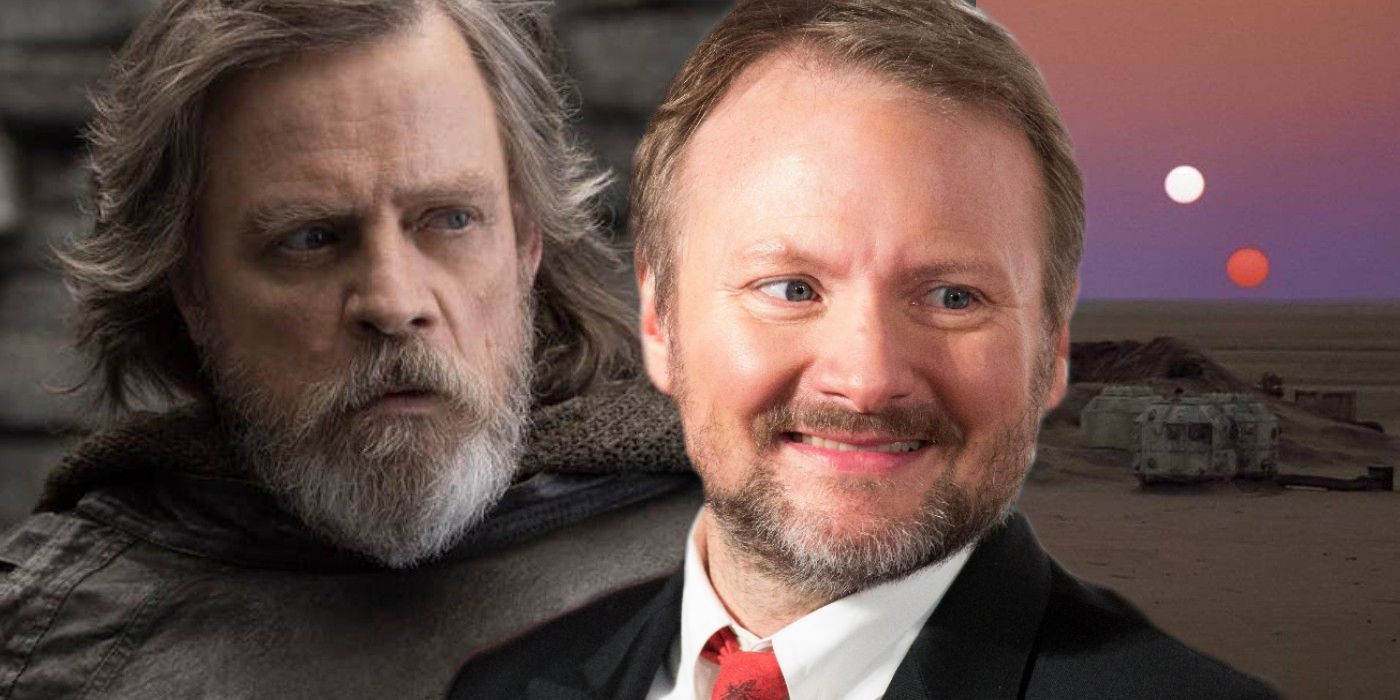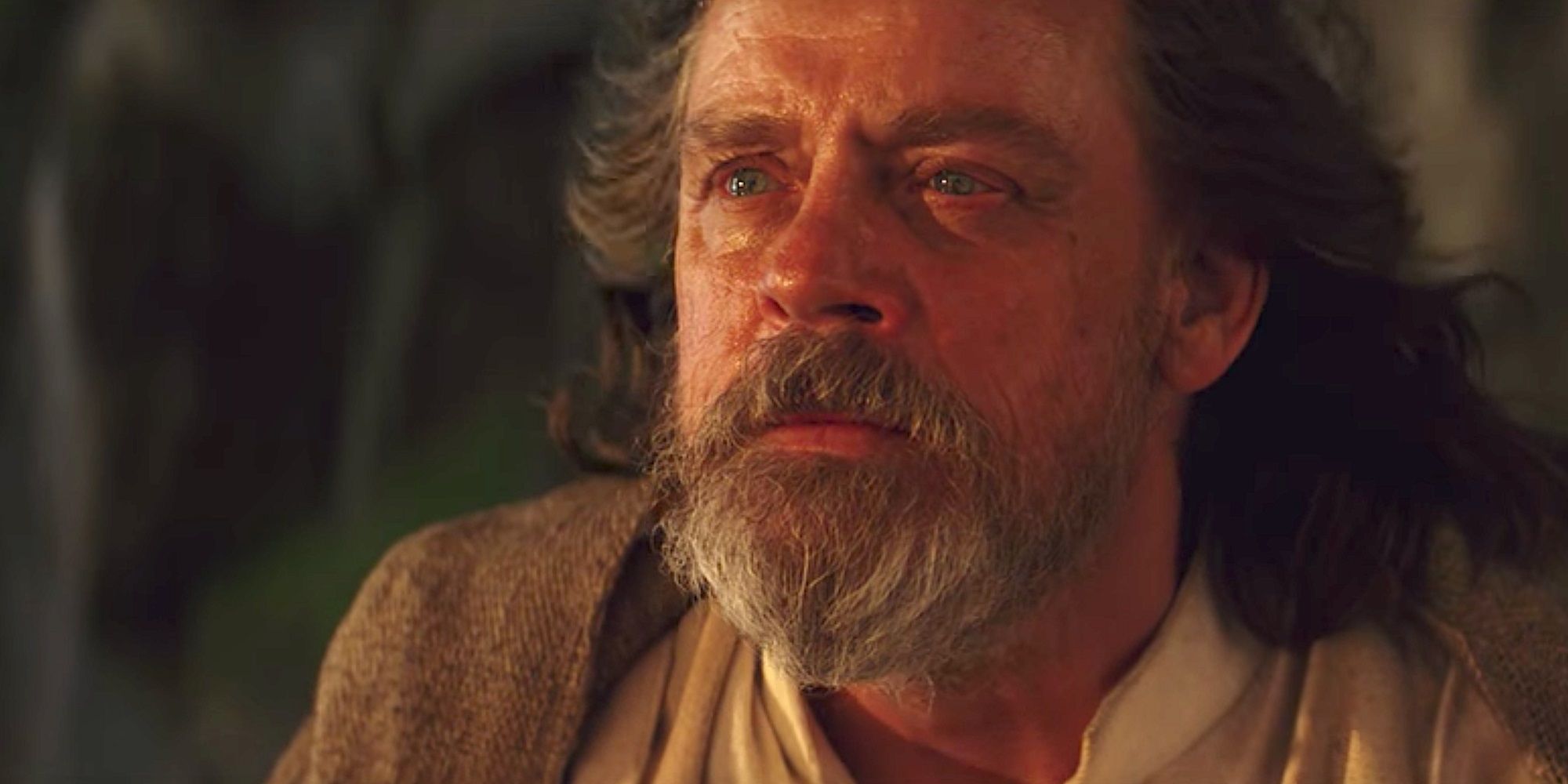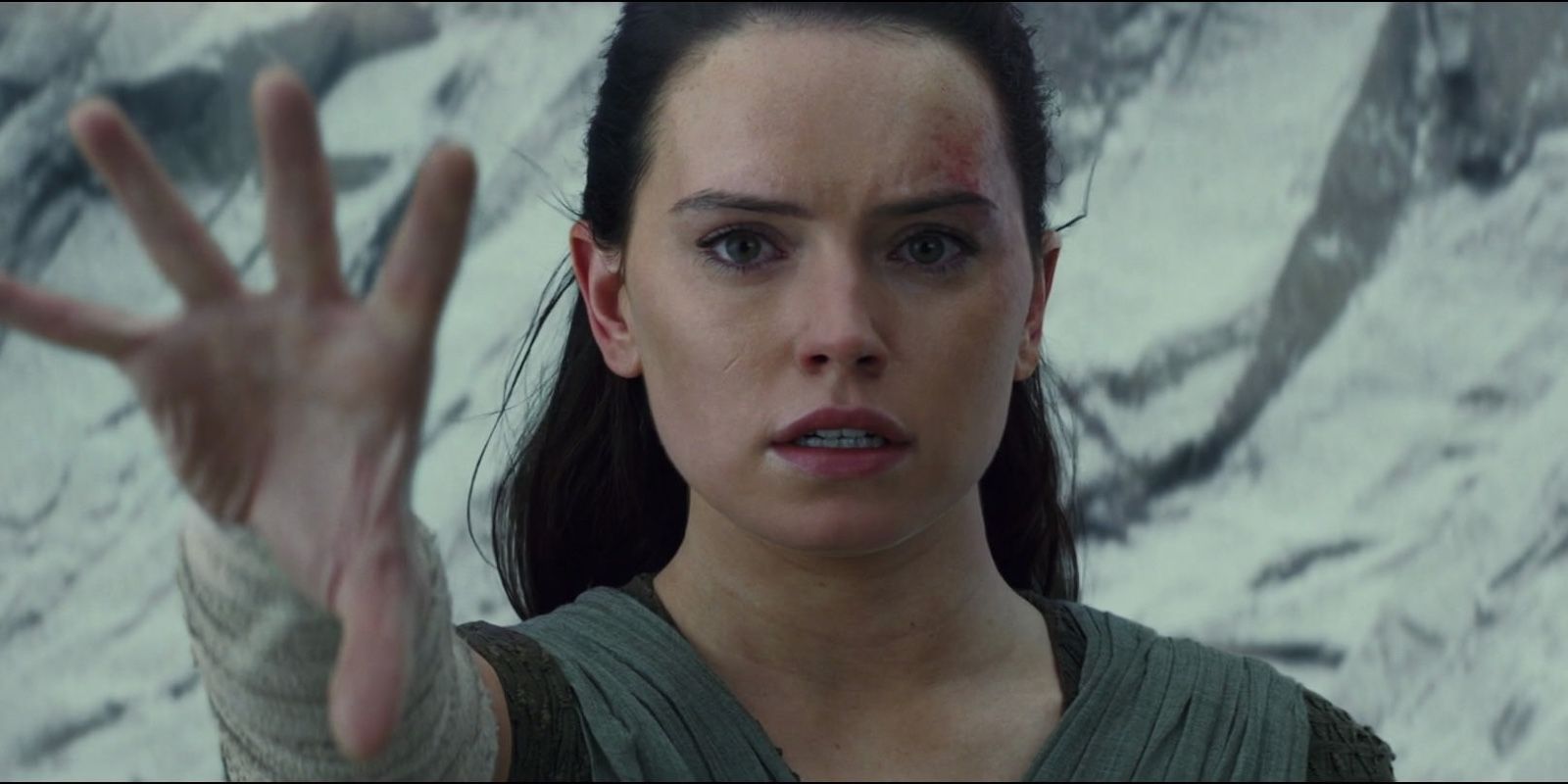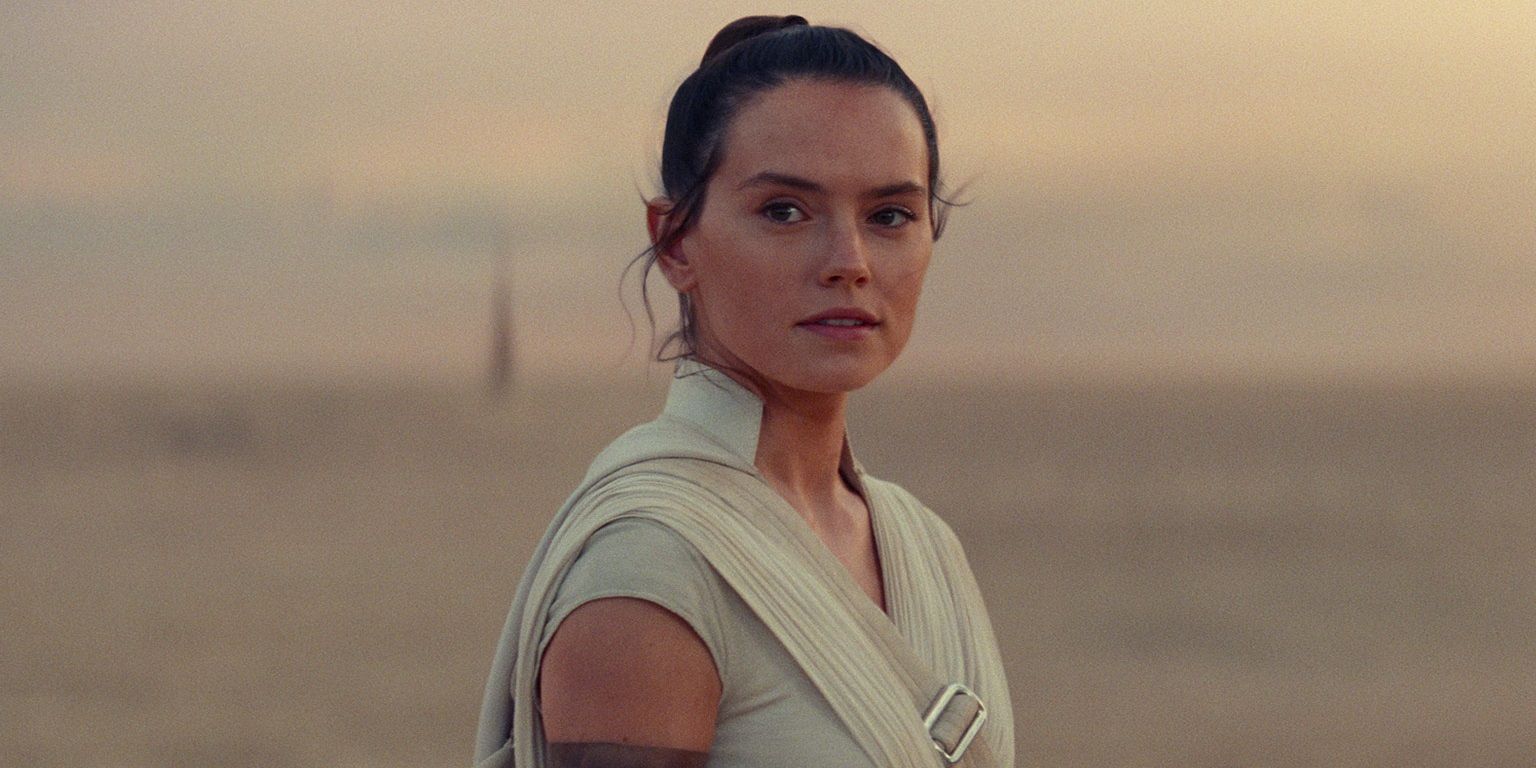
Rian Johnson's Star Wars trilogy means a bright future for the galaxy far, far away. Known for his work on Brick, Looper and Breaking Bad, Rian Johnson proved a popular choice to succeed J.J. Abrams when the announcement came in 2014. Though retrospective opinion takes a dimmer view, the Star Wars sequel trilogy started strongly with The Force Awakens and fans eagerly anticipated the continuation. Officially titled The Last Jedi, Rian Johnson's sequel looked to build upon the record breaking success and positive reaction of its predecessor, and maybe even mirror The Empire Strikes Back as a defining middle chapter. Instead, The Last Jedi would cleave a lasting divide in the Star Wars fandom that has only recently started to heal.
So confident were Lucasfilm in Rian Johnson's Star Wars debut, the director was hired to mastermind a brand new trilogy before The Last Jedi even hit theaters. With hindsight, the announcement was premature, as Johnson quickly received backlash for his take on the Star Wars mythos, and even Mark Hamill himself expressed displeasure at Luke Skywalker's creative direction in the sequel. Naturally, the idea of such a divisive filmmaker writing an entire Star Wars era was called into question, and over the past 4 years, Rian Johnson's trilogy has been the Schrödinger's cat of sci-fi, simultaneously happening and not happening.
In a new interview, however, Johnson has confirmed his Star Wars opus is still in the works at Lucasfilm. While The Last Jedi's detractors are looking forward to Rian's trilogy as much as Anakin Skywalker looks forward to a beach trip, pushing ahead with the proposed trilogy is an encouraging sign for the future of Star Wars, and doesn't necessarily have to spark another partisan social media schism.

The Last Jedi and The Rise of Skywalker are both incredibly divisive films, but for completely different reasons. The Rise of Skywalker's backlash mostly related to the construction of the movie - poor pacing, awkward plot holes, sloppy exposition, uneven character developments, etc. On the other hand, The Last Jedi's negativity mostly stems from being a bad Star Wars film, rather than simply a bad film.
Rian Johnson's The Last Jedi is undeniably unconventional and deliberately subversive. Luke Skywalker tosses away his old lightsaber and doesn't want to save the galaxy, Supreme Leader Snoke is abruptly killed off before the mystery of his identity is solved, and Rey is revealed as the daughter of no one in particular. There's no climactic lightsaber battle, and Finn's subplot takes a darker route into the nitty-gritty of warfare. With Rian Johnson taking so many sharp turns into unexpected territory, it's not hard to see why some fans took issue with The Last Jedi, but these creative decisions aren't contentious because they're inherently uninteresting - they're just not what audiences necessarily expected (or, indeed, wanted) from Star Wars at that juncture.
Heading into The Last Jedi, fans anticipated more development for the mysteries set up by The Force Awakens, and hoped to see Luke Skywalker back to his heroic best. Then there are all the classic ingredients and themes that have remained true through every single Star Wars movie thus far, such as the clear divide between good and evil, and the rules of hyperspace. The Last Jedi doesn't deliver in that respect, and whether you love or hate Rian Johnson's interpretation of the Star Wars universe, it's impossible to deny that he took a risk by shaking up the tried and tested formula inherited from J.J. Abrams.

Watching The Last Jedi, it's very apparent that Rian Johnson was looking to leave his own signature on the Star Wars tapestry. Whereas The Force Awakens adapted and modernized A New Hope for the current generation, Johnson was clearly looking to be bold and progressive. Consequently, most of The Last Jedi's divisive moments are Johnson refusing to play by the rules laid down by previous directors. J.J. Abrams wanted to build mystery boxes around Snoke's identity and Rey's parentage, but Johnson envisioned Kylo Ren as the main villain, and felt Rey shouldn't have any connection to an existing character. Johnson also wanted The Last Jedi to dig into corners of Star Wars lore that were relatively fresh, such as the arms dealers on Canto Bight, and didn't want to make Luke Skywalker the wise old Jedi warrior everyone had been fantasizing about for the past 35 years or so.
Handing Rian Johnson creative control over a brand new Star Wars trilogy means the director will no longer be constrained by legacy. Not only is The Last Jedi a direct sequel to The Force Awakens, it also serves as episode 8 in the 9-part Skywalker saga - arguably not the best time to be toying with the audience's expectations. According to reports, Rian Johnson's proposed Star Wars trilogy is entirely disconnected from the existing narrative, free from Skywalkers and legacy characters, and steering clear of the sequel trilogy era altogether. With such a tantalizing blank canvas to work with, Johnson will have the freedom to mold Star Wars as he sees fit, removing the potential for The Last Jedi-style backlash. Rian Johnson can't be criticized for making an un-Star Wars-y Star Wars film if the characters and setting are entirely fresh.

After the collective disappointment of The Last Jedi and The Rise of Skywalker, there's no shortage of ill-feeling surrounding the Star Wars sequel trilogy, and Disney's decision to continue the Skywalker saga might've been doomed from the start. After all, The Force Awakens was lambasted for being too derivative, The Last Jedi took flak for being too different, and The Rise of Skywalker was the mangled result of Lucasfilm desperately trying to fix the situation after pulling the plug on Colin Trevorrow's script. Apparently, tying together three different eras of Star Wars while weaving in exciting new elements that advance (but don't contradict) established canon isn't as easy as Jon Favreau and Dave Filoni make it look. To stay relevant in the decades to come, the future of Star Wars on the big screen needs to remove itself completely from the Skywalker family, starting afresh with a new story and an altered tone, and Rian Johnson is the perfect man for the job.
With The Last Jedi, Johnson crafted a film that a section of Star Wars loved. Others hated it, but only for straying too far from the norm. The Skywalker saga may not have been the time or place for Johnson's ambitious approach, but that same progressive spirit can now steer Star Wars into a brand new era.
Rian Johnson is the ideal balance between a familiar pair of hands and a director with new ideas, while also representing one of the better reported options to helm Star Wars in the coming years. Between the big screen and Disney+, it's hard to move in Hollywood without bumping into someone with a Star Wars project in the works, but not all of these appointments have aged well. David Benioff and D.B. Weiss were hired on the strength of Game of Thrones, but then season 8 happened. Patty Jenkins got the call from Lucasfilm largely due to her stellar work on Wonder Woman, but then Wonder Woman 1984 happened. Rian Johnson, on the other hand, moved on from Star Wars to enjoy huge success with Knives Out. Perhaps The Last Jedi wasn't the right Star Wars film for Rian Johnson, but Rian Johnson is still the right director for Star Wars.
from ScreenRant - Feed https://ift.tt/3dlLtft

No comments: